The district has been actively promoting the development of macadamia cultivation, encouraging and supporting residents to convert low-yield cropland to macadamia cultivation. This initiative not only helps to green barren land and hillsides but also brings high economic value to the people, officials said.
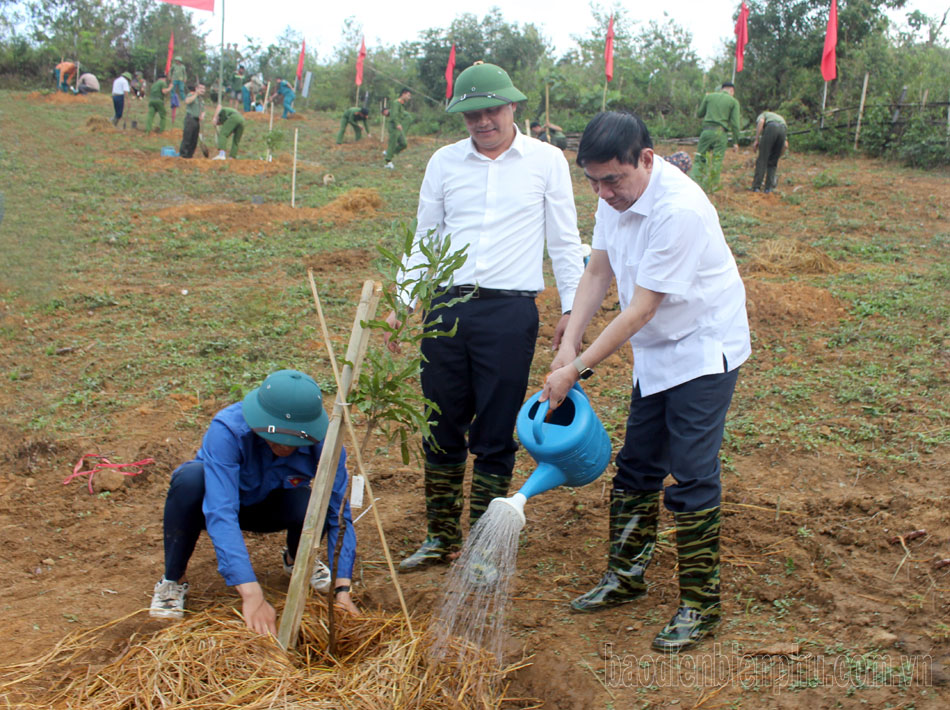
The Điện Biên Provincial Party Committee Secretary Trần Quốc Cường plants macadamia trees in Cang Village, Quài Nưa Commune, Tuần Giáo District.
Macadamia was first planted on a trial basis in Tuần Giáo District in 2013. By 2016, macadamia cultivation had expanded to hundreds of hectares. After several years of planting and care, some areas have begun to yield high-quality nuts with significant economic value. The income from macadamia offers a promising direction for selecting crops that help residents reduce poverty and increase income.
Secretary of Tuần Giáo District Party Committee, Lò Văn Cương, shared: “Macadamia trees have a lifespan of hundreds of years, helping to green barren land and hillsides while bringing high economic value to growers and meeting large market demand. After deducting costs, macadamia can generate an income of VNĐ120-130 million (US$5,200) per hectare per year, which is much higher than maize or cassava cultivation.”
“This crop is well-suited to the district's conditions and has the potential to aid residents in poverty alleviation. Therefore, the district considers the development of macadamia cultivation a major policy and top priority.”
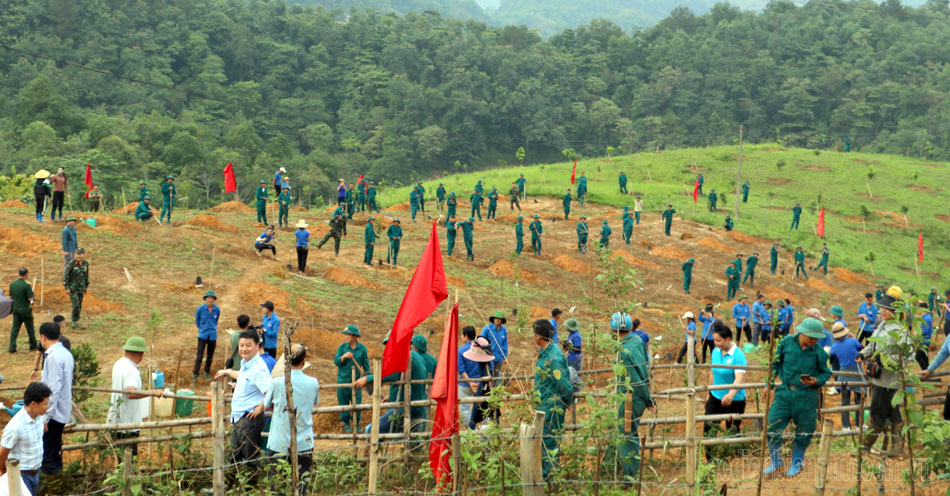
Officials, youth union members and local residents participate in the 2024 Macadamia Planting Festival in Tuần Giáo District.
The district has actively promoted and encouraged residents to convert low-yield cropland to macadamia. They have guided locals on techniques for digging holes, planting, and caring for macadamia trees, mobilising officials, soldiers, youth union members and association members to assist households in digging holes and transporting fertilizer.
The district has also implemented support for seedlings and fertilizers to help residents expand macadamia cultivation.
Meetings and direct dialogues with residents have been organised to listen to their opinions and aspirations. The district’s Party Secretary and Chairman of the district’s People's Committee attended these meetings to provide information on the orientation for macadamia development and to address farmers' concerns and difficulties during the planting and care process, particularly regarding technical procedures, care duration, harvesting, and consumption.
To ensure a stable market for macadamia, the district has signed a memorandum of understanding with the TH Group. Under this agreement, Tuần Giáo District commits to providing all necessary conditions for the group and its affiliates to implement the macadamia planting project in the area. In return, the TH Group commits to purchasing all macadamia products from the district for 50 years.
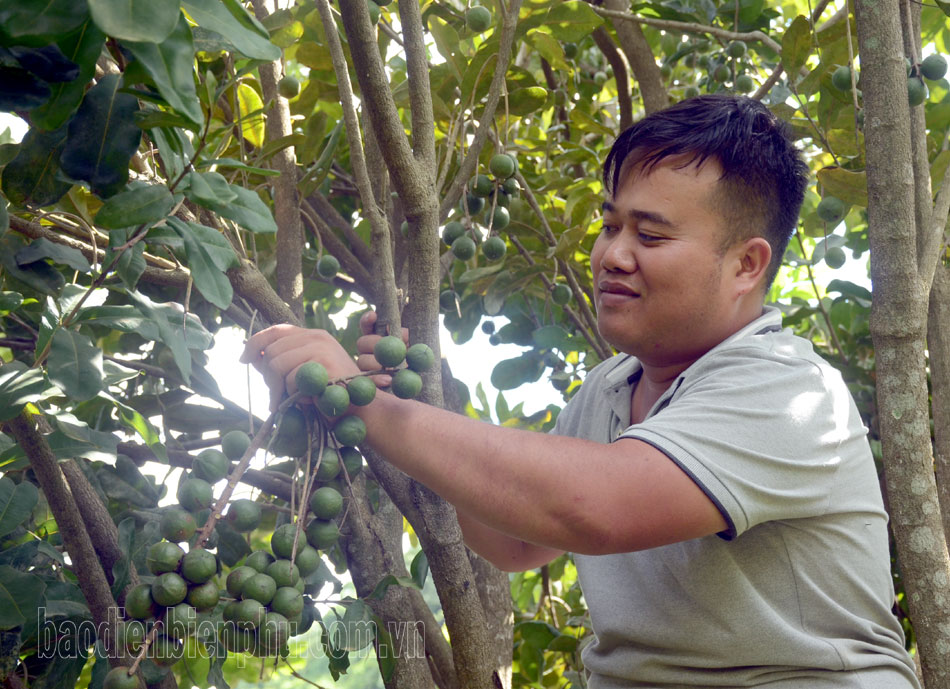
Tuần Giáo District residents harvest macadamia nuts.
Lê Xuân Cảnh, Chairman of the Tuần Giáo District People's Committee, stated that the macadamia planting area in Tuần Giáo is continuously expanding.
In 2022, the district planted 150 hectares of new macadamia trees. By 2023, the district planted nearly 1,700 hectares of macadamia, involving 2,800 households.
Currently, the planted macadamia trees are growing well, with a survival rate of over 90 per cent. This has led to a significant shift in the district's agricultural restructuring efforts, creating a sustainable path for poverty alleviation and wealth generation for local residents.
Tuần Giáo District aims to have over 8,000 hectares of macadamia by the end of 2025. This will help create jobs for tens of thousands of residents and provide a stable income for them.
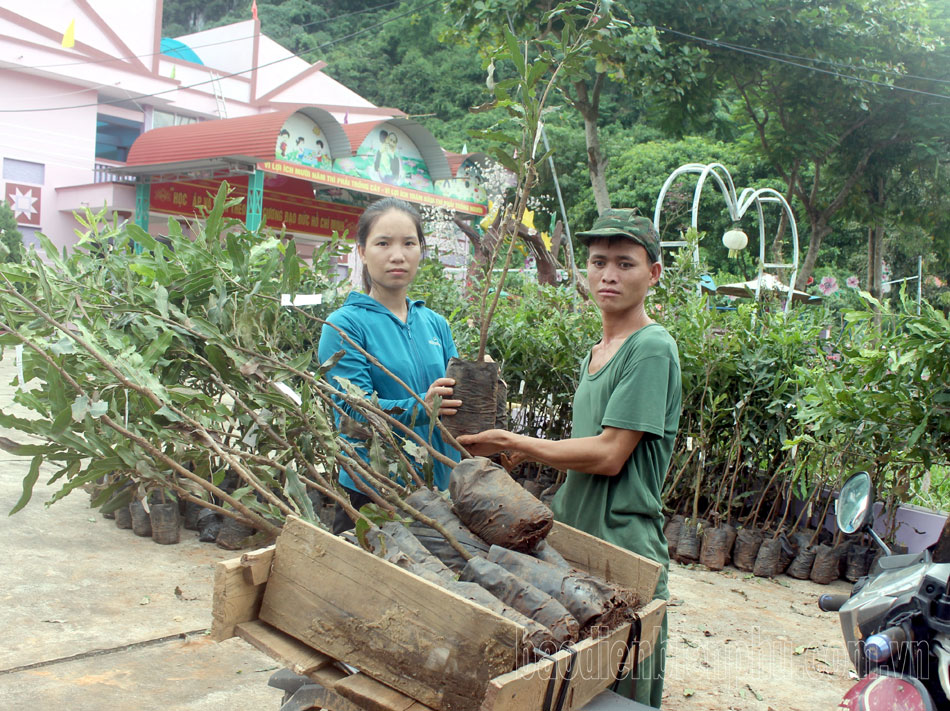
Agricultural officers in Chiềng Đông Commune distribute macadamia seedlings to residents.
In 2024, the district has promoted and mobilised 5,500 households to register for macadamia planting, bringing the total number of participating households to nearly 8,000, accounting for nearly 50 per cent of the agricultural population in the area. The total new macadamia planting area registered this year is 3,300 hectares.
The district aims to complete the planting of 3,300 hectares of macadamia by the end of this June, raising the total macadamia area in the district to 6,000 hectares and making Tuần Giáo one of the largest macadamia-growing areas in the country.
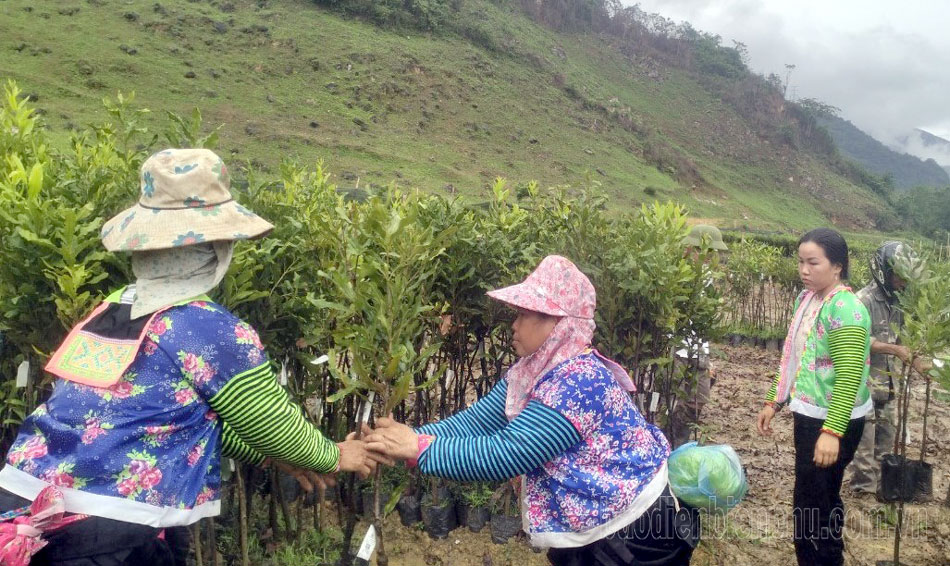
Poor households in Phình Sáng Commune receive support in the form of macadamia seedlings.
At the 2024 macadamia planting festival and the development orientation seminar for macadamia and coffee trees organised by Tuần Giáo District’s People’s Committee on May 23, the provincial Party Committee Secretary Trần Quốc Cường praised the district's approach and efforts.
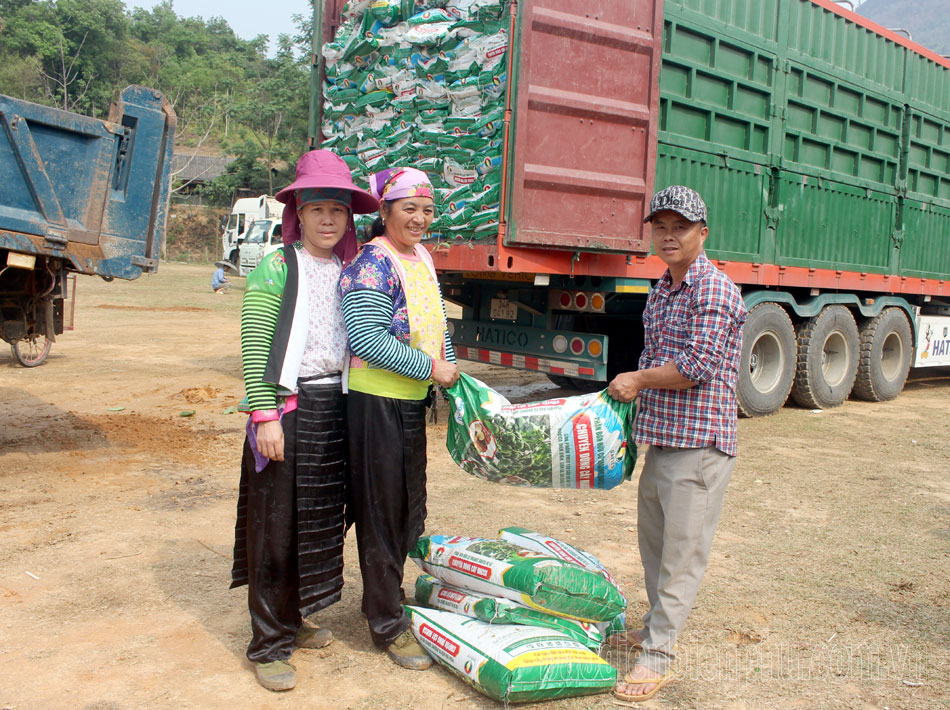
Residents of Xá Tự Village, Pú Nhung Commune, receive fertilizer for macadamia cultivation.
The successful macadamia planting in the district demonstrates the determination and effective leadership of the district authorities, the participation of organisations, enterprises and local residents in implementing the province's policies.




.jpg)
.jpg)

.jpg)



.jpg)
.jpg)
.jpg)
.jpg)




.jpg)
.jpg)
You have 500/500 characters left
Please enter 5 or more characters!!!